Prevention and treatment
Strong as an iron bar
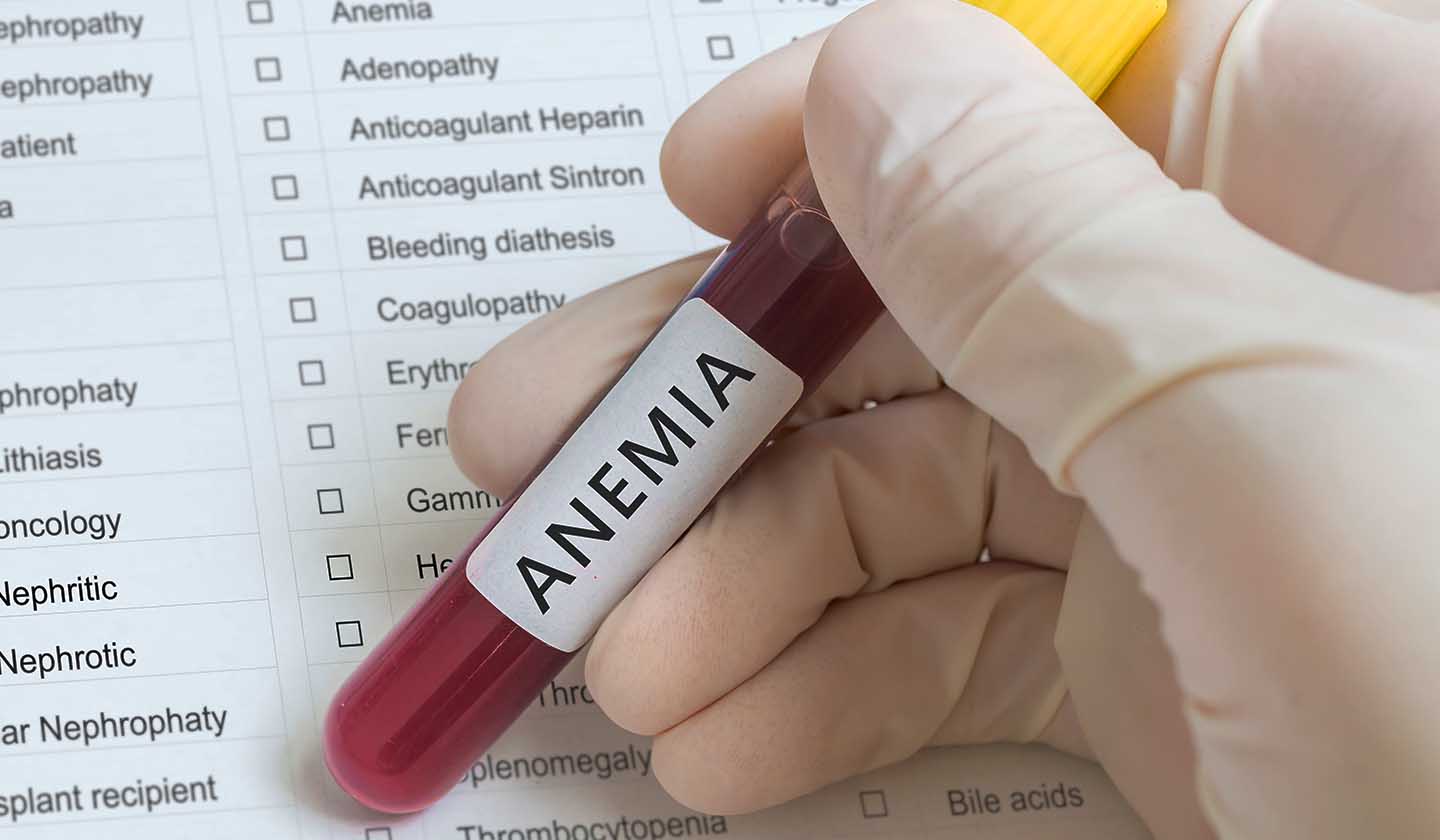
Anaemia is a health problem that affects about 1.48 billion people worldwide (data from 2015). It is estimated that half of the cases are caused by inadequate iron intake. The disease affects mostly women and children. Anaemia affects about 20% of the adult population in Portugal. It is, therefore, essential to understand its main causes, as well as treatments and forms of prevention.
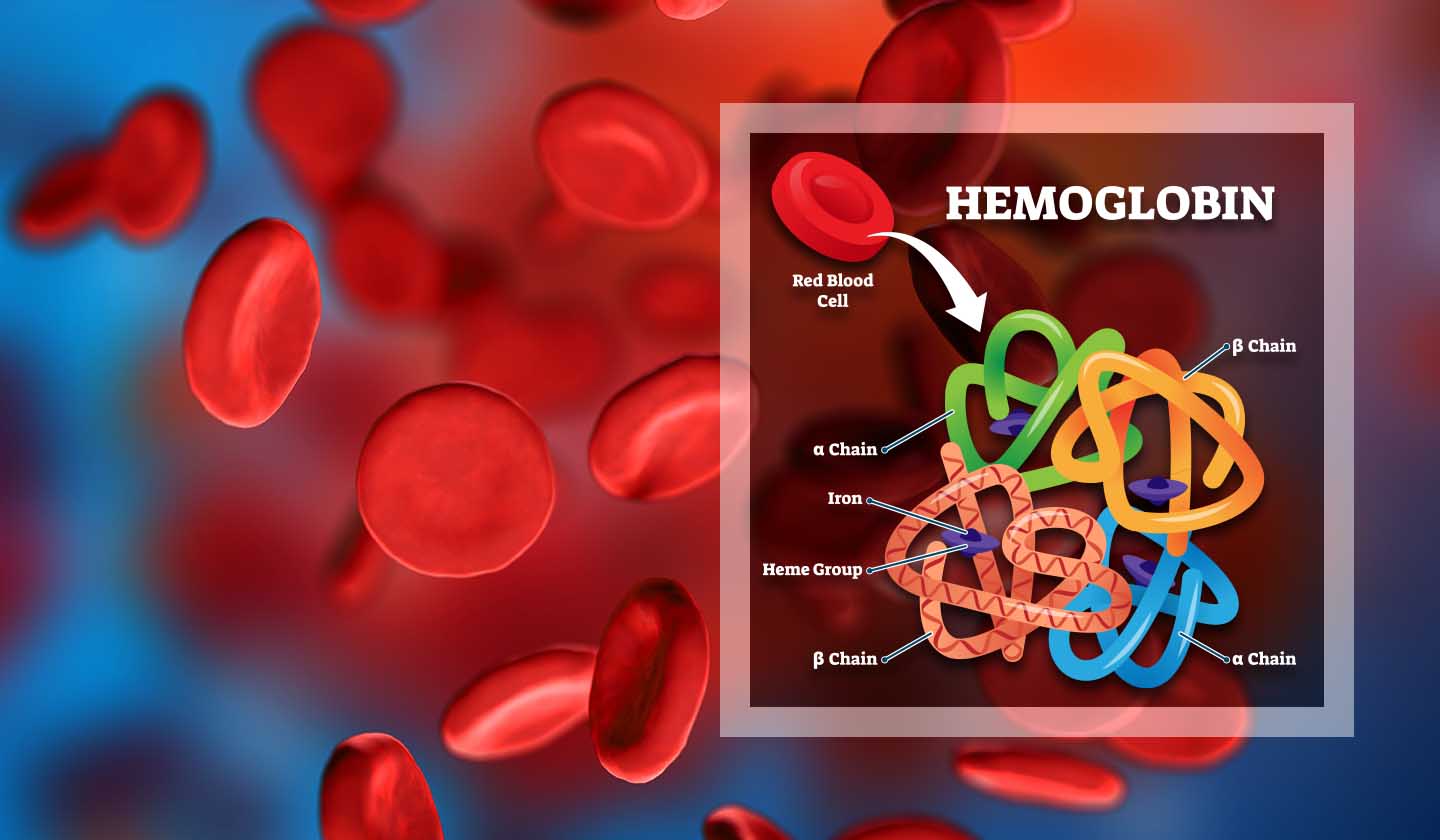
What is iron deficiency anaemia?
Anaemia is a health condition in which the number and size of erythrocytes (red blood cells) or the concentration of haemoglobin (blood protein) in the blood is below the values considered normal.
There are several types of anaemia, with iron deficiency anaemia being the most common one caused by lack of iron, which is necessary to form haemoglobin in erythrocytes. Haemoglobin retains oxygen so that it can be distributed to the body's cells; however, when iron levels are lowered, the required amount of haemoglobin is not formed, compromising the oxygen distribution throughout the body.
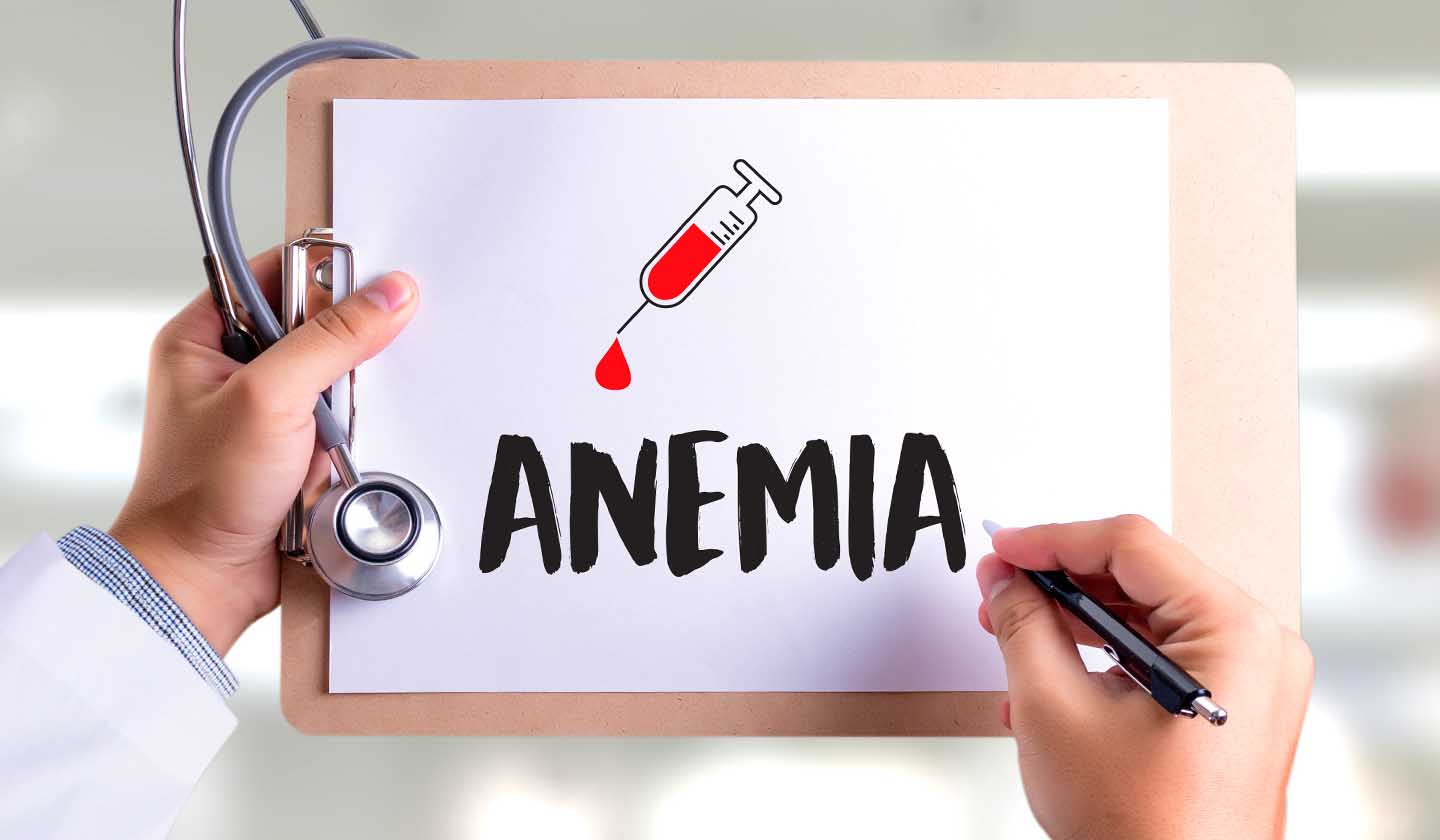
The main causes are:
- Unbalanced and poor.
- iron diet;
- Abundant bleeding (loss of great
- amount of blood);
- Pregnancy and breastfeeding.
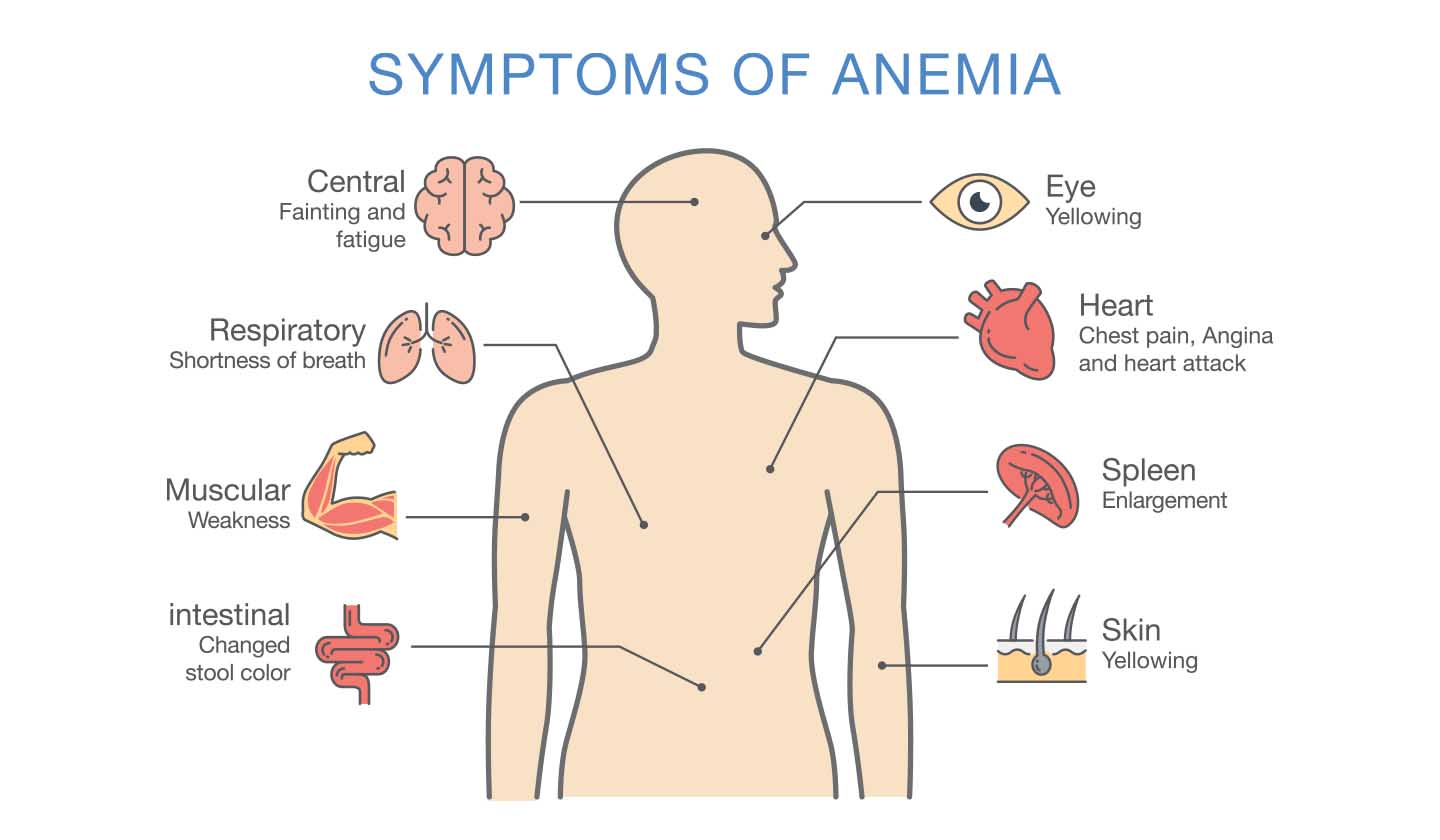
Pay attention these signals:
Iron deficiency anaemia tends to go unnoticed at first without symptoms, except for tiredness. However, with the evolution of anaemia, other symptoms start to appear pallor, cephalea (headache), sleep changes, dizziness, increased heart rate, shortness of breath sensation, brittle nails, and loss of appetite.
To confirm the diagnosis of anaemia, the levels and characteristics of erythrocytes need to be assessed, as well as the haemoglobin and iron levels in the blood. This assessment is made through blood tests. Depending on the results of the tests, additional tests may be necessary to correctly identify what is causing the anaemia.
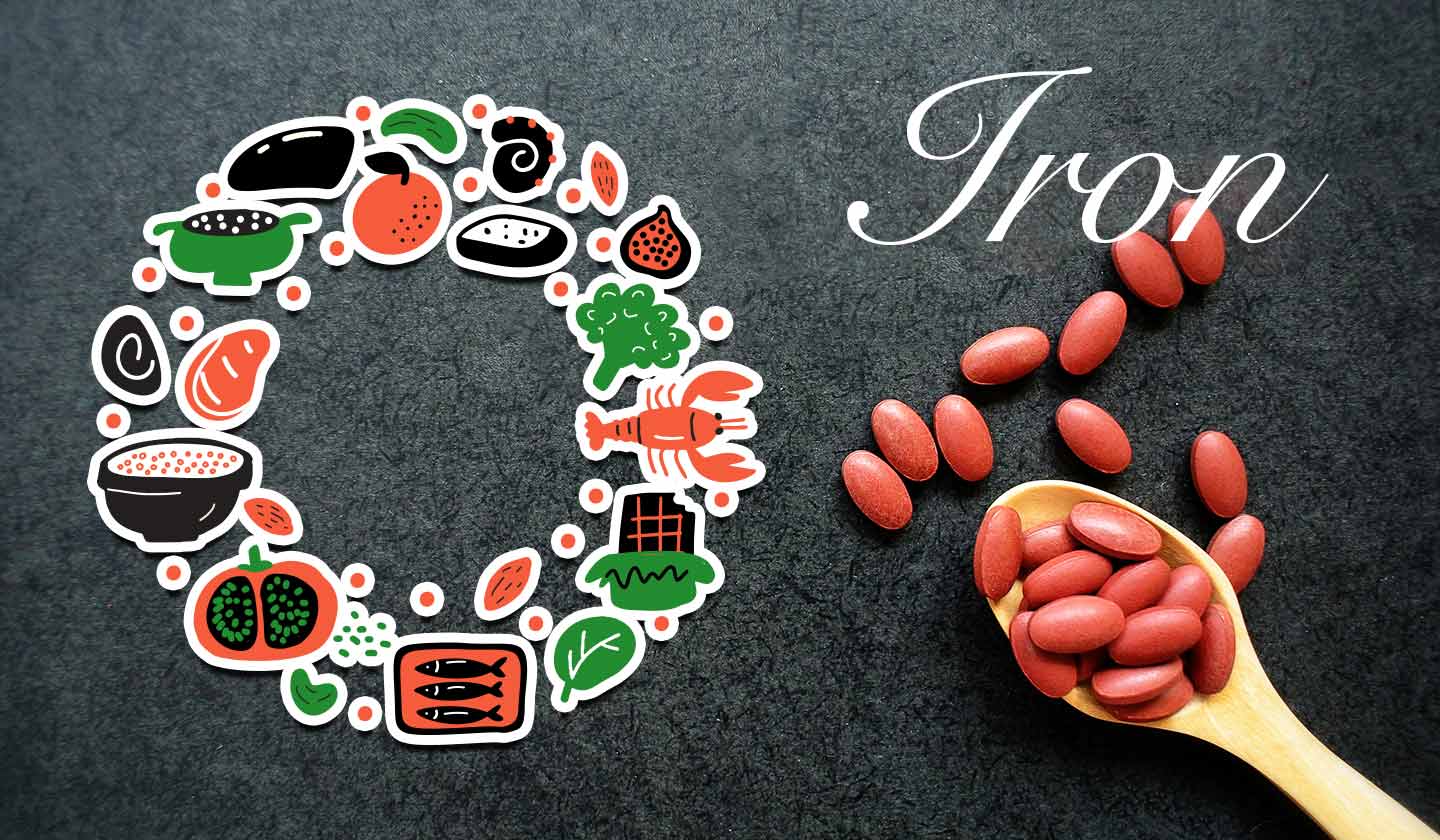
Treatment exists but prevention is essential.
After confirming that anaemia is caused by iron insufficiency, the usual treatment is the administration of oral or injectable medication, or iron supplements. If anaemia has been caused by blood loss, it is important to determine the source of the bleeding and to proceed with its treatment.
Iron absorption can be improved by changing some eating habits. Certain foods such as milk, cereals, carbonated drinks, tea, and coffee affect iron absorption; however, foods rich in vitamin C (citrus fruits, kiwis, broccoli, for example) have been shown to enhance iron absorption. Some medicines can also affect treatment efficacy, so make sure you inform your doctor and pharmacist about the other medicines you are taking.
Prevention is the keyword. It is essential to adopt a balanced and healthy diet, which must include red meat, fish, some fruits, and green vegetables (mainly rich in vitamin C), beans and nuts, since they are the main sources of iron. Inform your doctor.
Some stages of life require an increase in the iron intake (pregnancy, breastfeeding, childhood, and adolescence) and iron supplements might be prescribed by the doctor for prevention.
Sources
iSaúde
Farmácia Distribuição Magazine
Também lhe poderá interessar
Digestive system
Diarrhoea - When nothing is better than a nearby toilet
Gynecology






